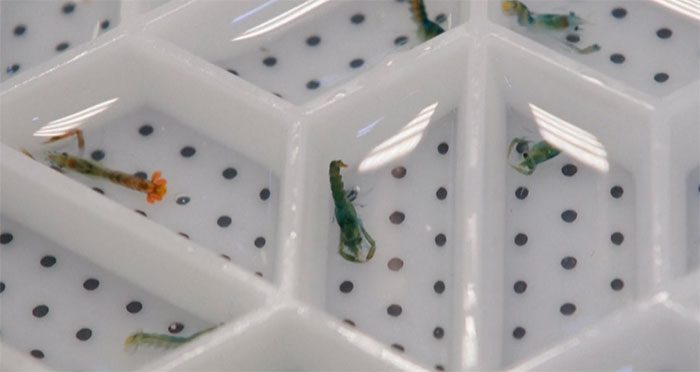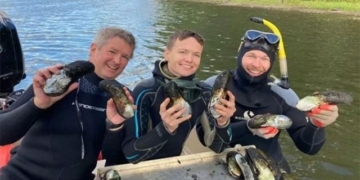With a funding of $120,000, a British biologist is launching a land-based lobster breeding project for sustainable fishing.
Whitby Lobster Hatchery of biologist Joe Redfern. (Video: AFP)
With a decline in white fish stocks across the United Kingdom, many fishermen in the northeast have turned to lobster fishing. In the town of Whitby, the third-largest lobster port in Europe, approximately 100,000 lobsters are caught each year.
To ensure sustainable harvesting, biologist Joe Redfern has established a hatchery to incubate and breed lobsters on land, with the ultimate goal of releasing a number of juvenile lobsters equal to the annual catch.
“We want to protect the marine environment and conserve lobster populations for the future,” said Redfern (31), founder of the Whitby Lobster Hatchery, to AFP.
Inside the hatchery, juvenile lobsters live in large white plastic tanks, free from predators and their own species. They hatch from the eggs of female lobsters collected from the North Sea, with each female capable of carrying thousands of eggs.

Breeding lobsters on land.
In harsh open sea environments, the survival rate of lobster larvae is only 1 in 20,000, or 0.005%, but in protected environments like Redfern’s hatchery, that rate can increase to 20-30%.
During the breeding process in the incubation tanks, larvae are separated when they reach a development stage where they might cannibalize each other in the wild. After two to three months, they will be ready to be released into the sea.
“Of course, when we release them into the ocean, not all will survive, but what we are trying to do is protect the juvenile lobsters during their larval stage, which is their most vulnerable phase,” Redfern added.
Redfern’s project has received over £100,000 ($120,000) from crowdfunding and business grants. Individuals can also sponsor each lobster and track it until it is released into the ocean.



















































